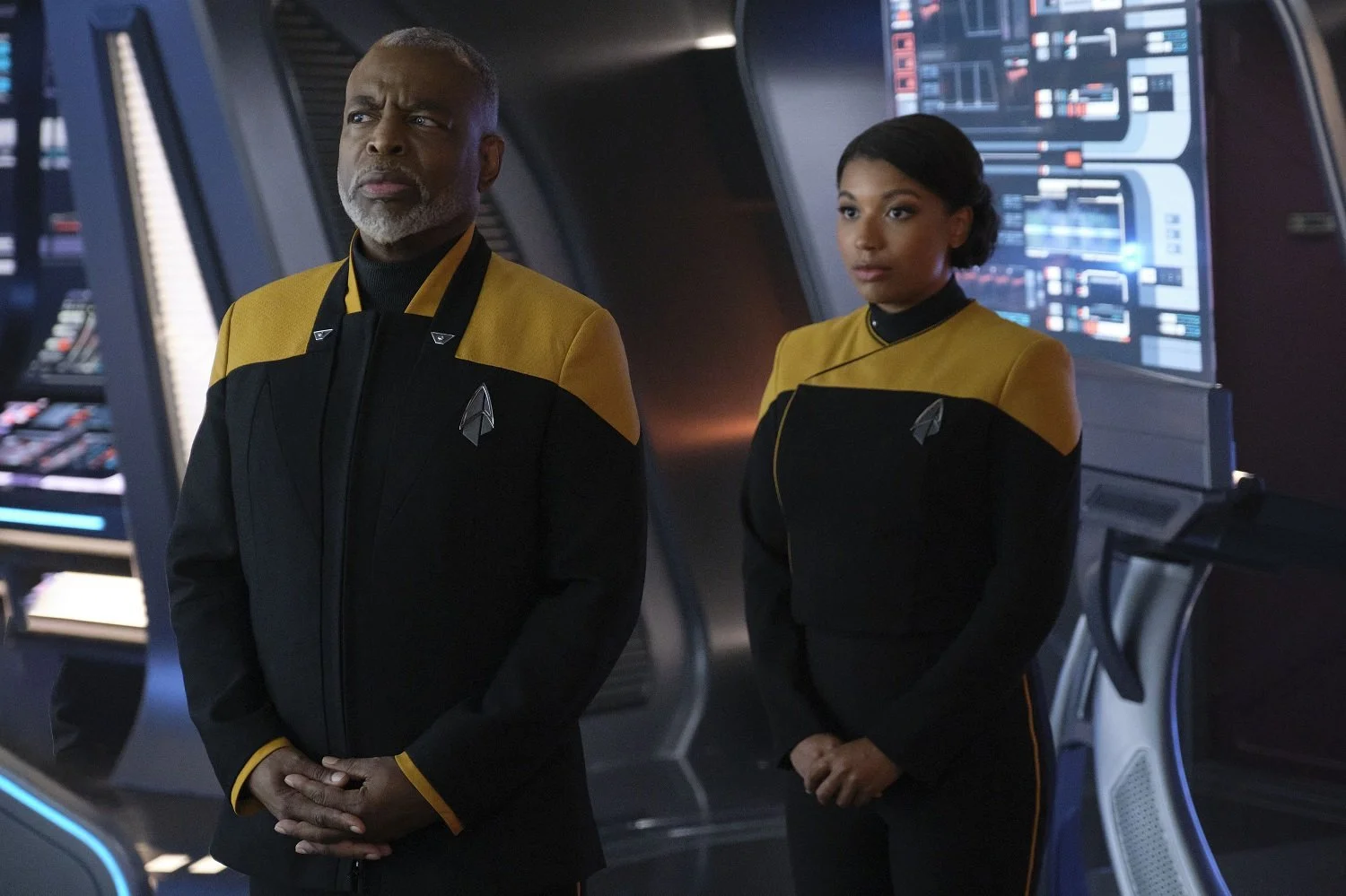IR TV Review: STAR TREK - PICARD - EPISODE 6 (“The Bounty”) [Paramount+-S3]
The parabellum of the reflection of life and sacrifice has always weighed on The Next Generation crew. They always had something to lose but they never quite had the time to contemplate it as well as what that instinct created in them. With the Season 3, Episode 6 episode of "Star Trek: Picard" entitled "The Bounty", the context is contemplated on what we are willing to give up or accept to maintain who we are. Some are able to mix it better than others (as Worf's slightly enlightened Klingon proves). In this episode, Geordi LaForge finally comes back into play but it is interesting to see the way time has treated him which is an interesting parable (not unlike probably Harry Kim). Family tends to change perspectives depending on the trauma endured. It hits different for Riker, but his personality differs as well. What is two fold interesting here in this episode is not necessarily the reflections of the main characters (though that does serve a purpose) but the mechanics of what we are seeing (specifically in how they approach Dystrom Station and one other space).
Some of the artifacts are barely buried cuts but a certain corridor sequence ties together generations in almost a single minute both visually and in an audio sense. It is beautifully done. Also the cat and mouse elements that played in the Nebula (in yet another nod to "Wrath Of Khan") comes back here in play with a game of hide-and-seek around a moon. "The Bounty" of course revels in certain other pieces we see reflective of a museum which allows one to impact "Star Trek" and its influence (as well as the name influence both of its classic base but also in reference to another "Bounty" in Star Trek lore). At one point, Seven is pointing out and discussing what different ships did and she comes to Voyager as it drifts in the distance. It is a beautifully poignant but also a slightly sad reflection with great subtlety by Ryan that gives the context so much richness that nothing really for her last season could ever reach. The correlation is that we are all who we are, except when we are not, which is the visceral irony that punctuates the end of the episode. B+
By Tim Wassberg


